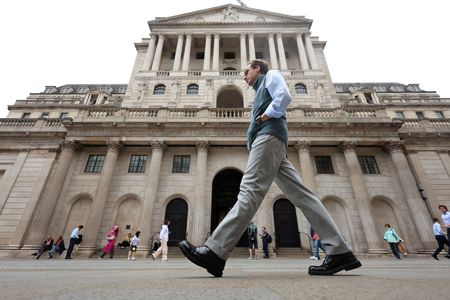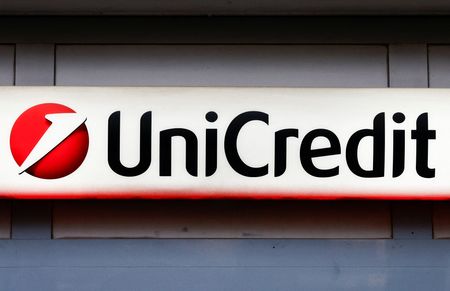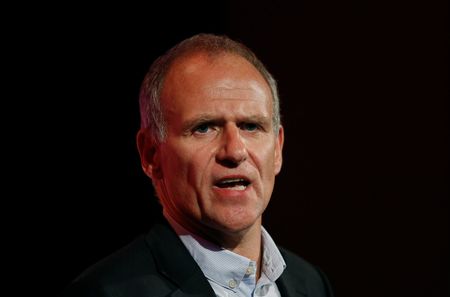LONDON (Reuters) -The Bank of England on Monday proposed that issuers of widely used stablecoins be allowed to invest up to 60% of the assets backing the digital tokens in short-term government debt, part of a raft of new rules that suggest a softening in its approach to the sector.
Stablecoins are digital tokens designed to keep a constant value and often backed by traditional assets such as government debt. The sector is booming, aided by the U.S. agreeing federal rules earlier this year.
The crypto industry sharply criticised a BoE proposal from 2023 to force issuers to hold all of their assets with the bank, which would not earn interest. Instead, the BoE said 40% of the assets would need to be held with it.
“Today’s proposals mark a pivotal step towards implementing the UK’s stablecoin regime next year…We’ve listened carefully to feedback and amended our proposals for achieving this, including on how stablecoin issuers interact with the Bank of England,” said Sarah Breeden, Deputy Governor for Financial Stability.
The BoE, which plans to oversee only stablecoins deemed capable of becoming widely used for payments, also outlined a temporary regime for issuers previously under the Financial Conduct Authority, allowing them initially to invest up to 95% of assets backing the stablecoins.
The BoE has, however, retained plans that are unpopular with the crypto sector to introduce temporary caps on the value of stablecoins that individuals and businesses can hold, though some larger businesses would be exempted if necessary. Such caps are not replicated in the regulatory regimes of any other major financial centres.
In a new proposal, the BoE said it was also considering offering central bank liquidity facilities to systemic stablecoin issuers during periods of market stress, providing a backstop if they are unable to sell their reserve assets in private market.
Stablecoins used as assets for non-systemic purposes, such as buying and selling crypto tokens — their main use today — would fall outside the BoE’s regime and instead be overseen by the FCA.
(Reporting by Phoebe Seers; Editing by Tommy Reggiori Wilkes)










